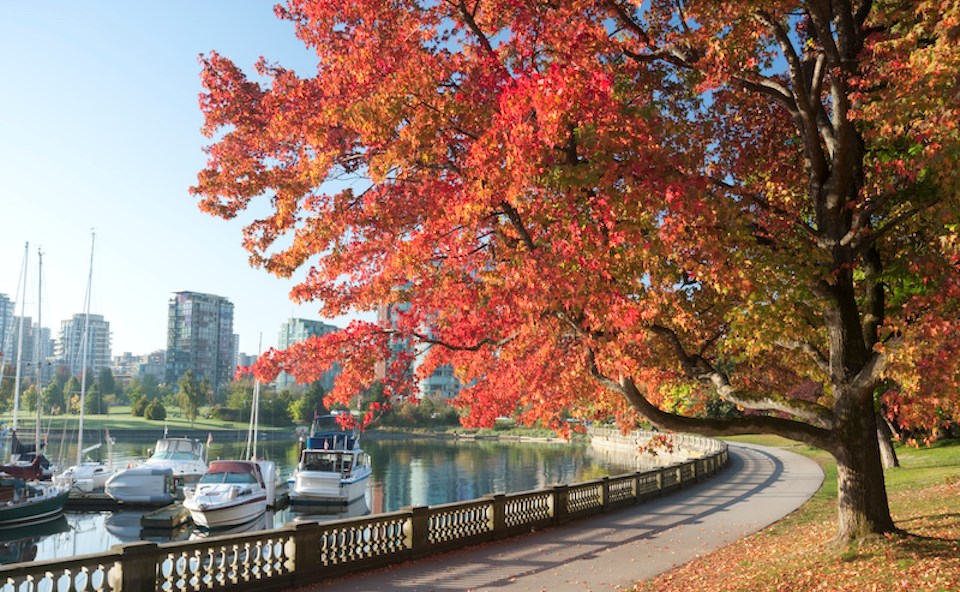If you were hoping for more hot weather this summer, you're likely in luck.
Environment Canada's latest update includes above-average temperatures for the rest of the season, as well as into the start of the fall, too.
But if you're wondering exactly how hot it will get — or what the rest of the year will feel like — that prediction is less clear.
Environment Canada meteorologist Bobby Sekhon says the signal for the next several weeks shows "above-average" temperatures for the Metro Vancouver region, which includes the first month of meteorological fall (September).
A signal of above-average temperatures doesn't spell out the nuances of a seasonal forecast, however. While it shows an overall warmer-than-usual trend, it doesn't include significant weather events, such as heat warnings.
"And that signal tends to get weaker as we get into October," Sekhon tells Vancouver Is Awesome in a phone interview. "[But] the next month or month-and-half includes the likelihood of above-average temperatures."
Starting next week, another ridge of high pressure may bring hot temperatures back into the region, although the meteorologist notes that it isn't possible to say how "far above-average" the temperatures will be. In other words, Environment Canada won't release a heat warning until closer to the date when the signal is clearer.
Does La Nińa have an impact on the Metro Vancouver weather forecast in the summer and early fall?
La Niña, "the girl" in Spanish, names the "appearance of cooler than normal waters" in the equatorial Pacific Ocean, according to the Canadian government; it is the opposite of an El Niño weather event.
While the weather phenomenon has occurred for centuries, the WHO points out that "all naturally occurring climate events now take place in the context of human-induced climate change, which is increasing global temperatures, exacerbating extreme weather and climate, and impacting seasonal rainfall and temperature patterns."
But the weather phenomena isn't currently having much of an impact on Metro Vancouver weather.
"La Nińa doesn't have too much of a factor until later in the fall or into the early winter periods," explains Sekhon. "So I don't think we can necessarily factor it up to La Nińa at this point.
"What we are seeing is warmer sea surface temperatures off the coast of B.C. With that influence of warmer water, that could sometimes mean that we get some warmer weather here too since we have such a coastal influence of the ocean.
Sekhon notes, however, that signals are predicting another La Nińa winter in B.C. this year. That said, he cautions that prediction could change before the winter season as it is still several months away.
If the La Nińa forecast is correct, Metro Vancouver will typically have below-average temperatures for the season. Find out more about why it is called a "triple-dip" la Nińa forecast and if it will cause severe impacts locally.



